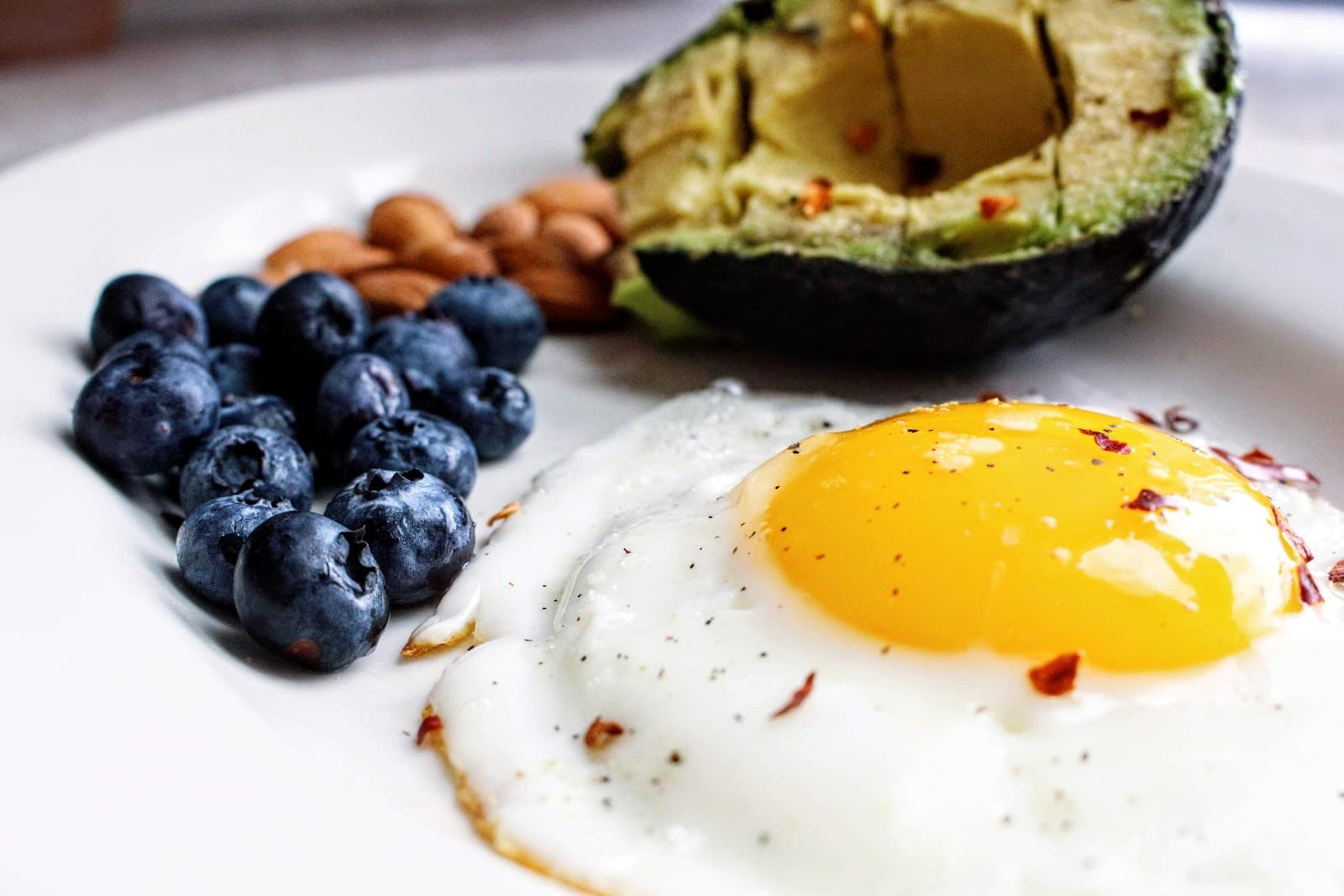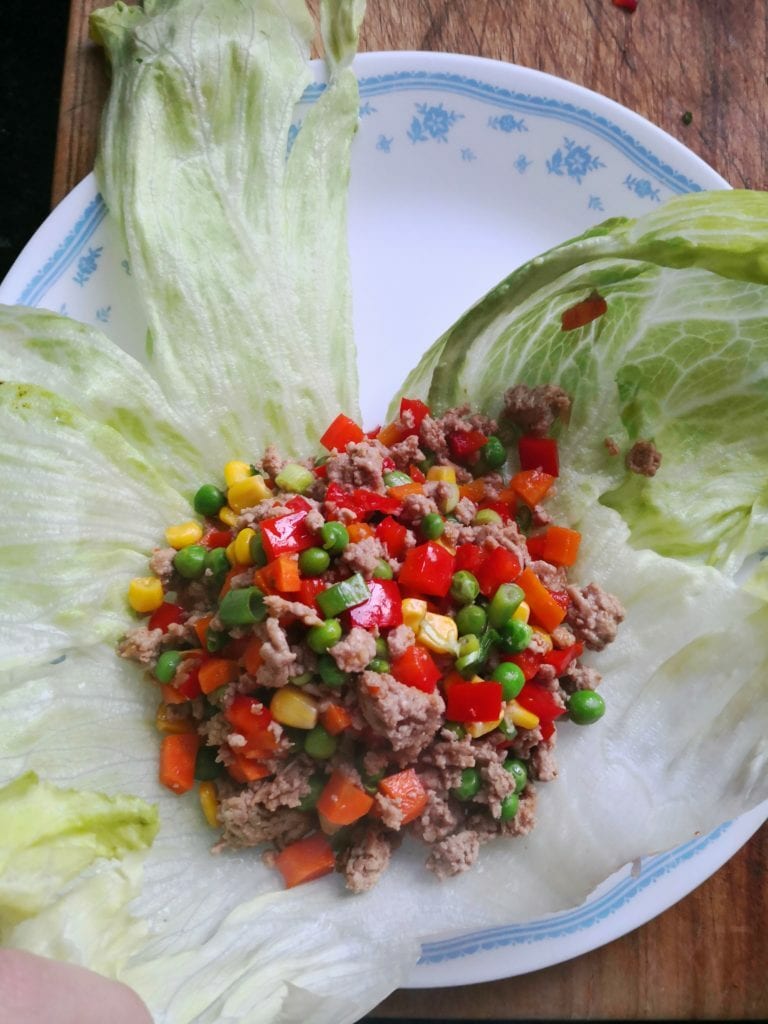Despite the ketogenic diet (or keto for short) being one of the most popular diets to be adopted in the past 2-3 years, as a women’s health and fertility dietitian & nutritionist, there was one question I would be asked consistently on social media and in clinic, was this:
“Can I go keto when trying to conceive or pregnant?”
The main motivation behind women wanting to follow this diet was usually for one of 3 reasons:
- They were told it would help them with weight loss.
- They believed it would make their insulin resistance and/or PCOS better.
- Someone on Instagram did it and got pregnant despite years of infertility.
So, in this post, I am delighted to be joined by Lana Hirth APD, a weight management and healthy habits dietitian to talk more about the ins and outs of the ketogenic diet and whether it is safe to be following whilst trying to conceive or during pregnancy.
But first…
What is the ketogenic diet?
Ketogenic diet is a very low carbohydrate diet, which limits carbohydrates to less than 40 grams per day but usually is around 15-20 grams of carbs per day (that’s about 1 piece of fruit worth for the entire day!).
It is a much more extreme version of a low carb diet, where most researchers even struggle to define what this really means! Some say it is anything less than 45% of your total calories, whilst others say it has to be a lot less than this to qualify as a “low carb diet”.
To achieve this reduction in carbohydrates, most people cut out fruit, grains, some vegetables and dairy.
The aim of the keto diet is to put your body into ketosis, where your body burns fat as the main source of fuel. Instead of glucose, ketone bodies become the primary fuel source. It tends to mimic responses that happen during a fasting or starvation state. The body is forced to use the stored carbohydrates, glycogen, for fuel until it runs out and then it uses fat.
Keto is herdaled at the diet for weight loss and diabetes, but it was first used for Medical Nutrition Therapy to reduce frequency of seizures in children with epilepsy (Roehl et al., 2017). There’s also more emerging research in specific neurological disorders (Stafstorm et al., 2012) and using it in conjunction with treatment for some cancer (Weber et al., 2018), though this is a new area.
So, what about fertility?…
Is the ketogenic diet safe when trying to conceive?
In the lead up to conceiving, fondly known as the pre-conception window or period which spans 3-6 months before successfully conceiving is a very sensitive time when it comes to your nutrition and lifestyle for both men and women.
What we eat, drink and expose ourselves to can impact on the quality of both eggs and sperm which could wind up to be your future baby!
Remember, it takes about 74 days for sperm to mature and about 90 days for an egg to mature.
TTC we want the optimal diet for pregnancy. First 1000 days of life sets up child’s health and this include preconception, so we know that the time before and during pregnancy is vital for our child’s health.
So, where does the ketogenic diet stand during pre-conception or even during fertility treatments like IVF?
The short answer is probably not.
Keto causes several significant dietary restrictions including, but not limited to:
- Fruit – consistently linked with enhanced fertility and reduced risk of miscarriage (Gaskins & Chavarro, 2017; Gaskins et al., 2014).
- Some vegetables – I mean, any diet that limits veggies I am skeptical of!
- Wholegrains such as oats, wholegrain bread, brown rice, quinoa – these foods have been linked with enhancing endometrial thickness to support implantation and provide iodine and folic acid when fortified too, super important before and during pregnancy (Gaskins et al., 2016).
- Legumes, beans and pulses – rich in soluble fibre, plant protein and antioxidants. Eating more plant protein each day instead of animal protein has been linked with optimal fertility in some research (Chavarro, et al., 2008).
- Dairy foods – rich in calcium, phosphorus and a source of protein, getting adequate calcium to support bone health before pregnancy may be challenging without very thorough dietary planning.
So, as you can see, some of my favourite foods that feature on my pre-conception lifestyle checklist (which you can download here by the way), are well and truly missing! This may mean you are missing out on critical nutrients when trying to conceive, including fibre, B vitamins like folic acid, calcium, phosphorus and more!
It is ideal to be meeting your daily nutrient targets from food with a little help from a prenatal supplement each day at least 1-3 months before you conceive, and the ketogenic diet may make it harder for you to do so.
Guidelines from medical ketosis diets such as Very Low Calorie or Energy Diet (VLED) shakes used for weight management highlight that a period of 6 weeks before conceiving should be allowed for re-introduction of carbohydrates to help support optimal health, wellbeing and outcomes for fertility treatments or unassisted conception.
However, new research emerging shows there may be one exception to my advice to steer clear of the ketogenic diet if you’re trying to conceive. And that is women with PCOS, which is one of the leading contributors to female infertility usually due to anovulation, or the inability to regularly release an egg from the ovaries.
For women with PCOS (polycystic ovary syndrome) who were overweight and had insulin resistance, a 12-week trial of the ketogenic diet may help improve not only weight but also insulin resistance markers as well as improvements in hormone profiles and cholesterol too (Paoli, et al., 2020). This was based on the study of only 14 women with PCOS, it is simply way too small of a sample size to give conclusive recommendations and the effects of following this diet for a longer period of time in this group of women has also yet to be studied (Paoli et al., 2020).
At this time, it may be an option you might want to explore with the support of a fertility dietitian & nutritionist, do not go this alone, an open-minded health care professional can support you and ensure your safety whilst following this restrictive dietary pattern and help you transition off of it smoothly before pregnancy or fertility treatments.
One of the biggest downsides I see for the ketogenic diet is that, if you do manage to lose weight and improve your insulin resistance before conceiving, you will need to abruptly stop this way of eating during pregnancy when the desire for carbohydrate foods like dry toast, pasta, rice and breakfast cereal to keep the first trimester nausea at bay is at an all-time high.
This can lead to excess weight gain as well as fluid increases with the additional carbohydrate replenishing muscle stores in the first trimester. Depending on your pre-pregnancy weight, it is generally recommended that you strive to maintain your weight in the first trimester of pregnancy within the realm of 1-2 kg, unless you enter pregnancy with a BMI that falls into the underweight category (below 18.5).
Speaking of pregnancy…
Is the ketogenic diet safe when pregnant?
When we look at the research, there isn’t really any studies looking at pregnant women and the keto diet. And there’s a good reason for this.
Before any human study is conducted, it is usually tested on mice to see if it is safe and if it’s worthwhile continuing to look at it in future human studies. So the researchers looked at some mice and the keto diet. One study examined the effect of the keto diet on mice 30 days prior to pregnancy and during pregnancy (Sussman et al., 2013) . They compared these mice to others fed a standard diet.
As we mentioned earlier, the aim of the keto diet is to put the body into ketosis to produce ketone bodies to be the body’s main fuel source. In pregnant mice, these ketone bodies cross the placenta and were used as the main energy source for foetal growth. The embryo mice had (in the researchers words) dramatic changes in their body size and organ growth. They found alterations and deformations in the embryo’s organs, the brain, spinach cord, pharynx (windpipe), heart, thymus (critical for our immune system) and liver. Deformations this early on are a sign there could be other functional or behavioural changes later on in life.
Keep in mind, this research is in mice and not humans. So, we don’t really know if this would exactly occur in humans. But this is why no studies have been conducted. No ethics committee would ever approve research knowing there is a risk of altered organ growth!
So, given the research in mice, and what we already know about the keto diet, it isn’t going to give your body the key nutrients it needs for growing a baby. Also, based on VLED product guidelines, we know that being in a state of ketosis during pregnancy is currently not recommended to be safe. For these reasons, the keto diet is not safe during pregnancy.
So it’s not safe for pregnancy, but could there be other reasons to use the keto diet…
Are there any benefits of the ketogenic diet?
There’s a reason many people keep turning to the keto diet. It produces quick weight loss.
And there’s no surprise here given it’s a dramatic change in eating. And this makes sense, if you’re cutting out carbs and refined sugars, you’re also cutting out traditional pizza, cake, ice-cream, chocolate, bread, pastries, those late night biscuits and chips. And bonus, you end up eating a lot of extra fats (which tend to be rather filling!).
And speaking of fats, the abundance of dietary fats is going to help with steroid hormones like estrogen and progesterone. This is true especially if you’re getting extra fertility friendly omega-3 from salmon, sardines, macrille, trout and tuna.
Back to weight loss, the short term weight loss is about 2-4kg extra with a keto diet,
but when we look longer term (1-5 years) it’s not more effective than other energy restrictions.
It can be helpful to see it a tool to kickstart weight loss, whether you’re using VLED Meal Shake Replacement or a food based ketogenic diet. But we don’t just want to focus on the number on the scales. When attempting weight loss, we want to focus on fat loss and so it’s important to look at what sort of weight loss the keto diet is producing.
In fact, some research suggests doing phases of the keto diet and the Mediterranean diet could be helpful to sustain the weight loss (Pailo et al., 2013). For most people, it’s difficult to stick to the keto diet long term – and if we know it isn’t safe during pregnancy, it could be worthwhile checking in with a weight management or fertility dietitian to help support you with a weight loss approach that’s right for you.
There are a few benefits, but…
What are the risks?
When going on any diet, there are risks. Especially when you’re cutting out key food groups (as we mentioned earlier), the risks are even greater. Here are just some of the risks:
- Vitamin and mineral deficiency – That’s because each food group provides a unique contribution of vitamins and minerals. Especially before, during and after pregnancy there are very high nutrition requirements, so now’s not the time to be cutting out any nutrients. In particular, folate, B vitamins, calcium, magnesium and fibre. Researchers conclude supplementation is required when adhering to the ketogenic diet (Gupta, L et al., 2017), and women already need an individual prenatal supplement plan designed by a fertility dietitian.
- Potential impact on gut microbiota favouring less of the fibre-digesting bacteria and more of the protein and fat-digesting bacteria associated with less optimal health outcomes overall.
- High saturated fat intake of diet if relying on fat sources like animal protein, butter and coconut oil linked with increased risk of developing endometriosis, one of the leading contributors to female infertility (Missmer et al., 2010).
- Inadequate wholegrains, fruit and legumes and beans – all associated with optimal fertility and health in pregnancy.
- It doesn’t teach long term habits – The key to long term healthy eating is being able to sustain the changes we make (Freire R, 2020; Cleo et al. 2017). Focusing on habits, and making healthy eating more of an automatic process (by harnessing your brain’s reflective system) is key to making it easier to sustain your healthy eating when the tiredness of pregnancy and newborn life hits!
- Weight regain – It could be the weight loss, however, the extra weight loss comes from water weight when our body starts to use our glycogen stores (Yang, M et al. 1976).So as soon as you start eating carbohydrates again, that water weight will come back as your body starts to replenish your stores of glycogen. Most people cannot adhere to the keto diet long term, so even though weight loss can seem really impressive, remember fat loss is more important. And with any weight loss, if you change back to the way you were eating, often the weight comes back (Freire R, 2020).
- Bone mineral density losses – Insufficient calcium is a big risk and challenging to obtain enough from a keto diet, which means your body can revert to getting sufficient calcium from your bones.
- Triggering eating disorders and disordered eating patterns – any restrictive diet increases the risk of this and the ketogenic diet is no exception. If you’re someone who has a history of eating disorders or disordered eating patterns, the keto diet is not recommended.
- Increased environmental impact – this could occur if you choose to increase your fats and protein from animal sources by eating such as red meat, white meat, cheese and cream.
Final thoughts
The keto diet is not a DIY diet. It is not safe during pregnancy, but there might be a few exceptions where it could be used TTC. It always needs to be done under the care of your health care team including a weight management or fertility dietitian.
Need help with your pre-conception or pregnancy nutrition? Book a FREE 15 minute discovery call with our team at The Dietologist, expert fertility dietitians & nutritionists, and let’s get you started on building a fertility friendly diet that is just right for YOU!







